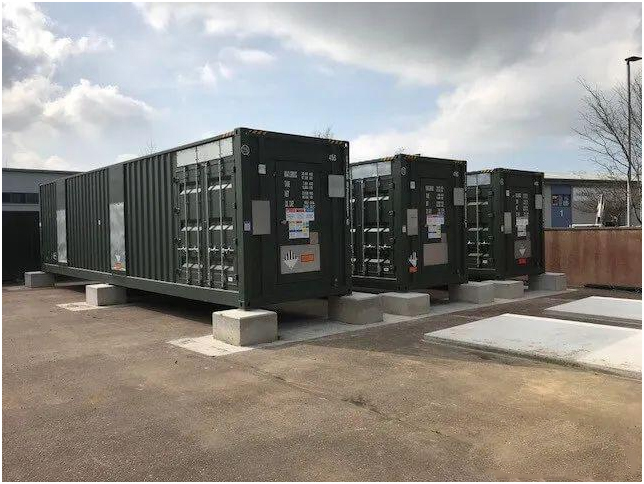Mitsubishi Electric Power has said it is entering the European energy storage market by supplying and deploying four battery storage systems with a scale of 185.5MW/371MWh for Irish energy developer ION Renewables, according to foreign media reports.
Mitsubishi Electric Power, the power solutions division of Japanese conglomerate Mitsubishi Corporation, has signed an exclusive agreement with IONRenewables to provide its Emerald energy storage solutions for the four battery energy storage systems (BESS) projects, which have an overall size of 185.5MW/371MWh.
The energy storage projects, which will come online in 2024, will provide fast frequency response and ancillary services to the Irish national grid operated by grid operator Eirgrid, primarily through its Secure Sustainable Power System (DS3) framework.
ION Renewables said they would also eventually incorporate energy arbitrage from renewable energy sources into the applications they offer.
Thomas Cornell, senior vice president for energy storage solutions at Mitsubishi Electric Americas, said all four battery storage systems would be deployed on existing industrial sites at underutilized grid interconnection points.
The Emerald energy storage solution will last up to six hours, and Mitsubishi Electric will also provide project engineering, equipment supply, and a 10-year long-term service agreement. Cornell asked why the duration is two hours, "In all of our projects, the duration is driven by customer specifications or available interconnections. The current energy market in Ireland favors a one-hour duration. Ion Renewables and Mitsubishi Power have conducted a detailed analysis of the future needs of the grid and anticipate that durations will be extended to two hours or more in the next few years. We included this in our base case because when the energy storage system is operational, we believe two hours will be best suited to meet market demand."
John Ward, director of ION Renewables, said in a press release, "These energy storage systems represent a viable and economical solution to balance the grid and are highly consistent with the principles of the draft REPowerEU Directive. These projects demonstrate that effective energy storage solutions can be achieved by harnessing renewable energy that would otherwise be curtailed."
With Ireland aiming to meet its target of adopting 70% renewable electricity by 2030, deploying and operating battery storage projects will help integrate more renewable energy into the grid. And battery storage systems are well suited to provide frequency-responsive services, making Ireland a relatively advanced battery storage market for its size.
Because the Republic of Ireland shares a grid with the Northern Ireland region, it can be classified as one energy market - with 1400 MW of battery storage systems to be installed by the end of this year, according to research firm Delta-EE. However, the company expects annual deployments in the next few years to fall from a high of about 750 MW in 2021 to about 250 MW after 2025, in part because of the planned new grid interconnection with France.
ION Renewables said it had extended the current eligibility of existing market arrangements under its Secure Sustainable Power Systems (DS3) program through 2031, following recent concerns by some in the industry that its program will expire in 2023-2024.
A spokesperson added, "There will be new market arrangements after 2031, and ION Renewables does not believe that these new arrangements will necessarily be detrimental to the business case. The size of the energy storage market will only increase as Ireland deploys more renewable generation facilities and reduces its reliance on imported fuels. This may result in modifications to current energy storage systems to increase their duration to six hours. Still, ION Renewables has great confidence in Mitsubishi Electric as its partner, and the company will be able to respond quickly to any needs in the market."
